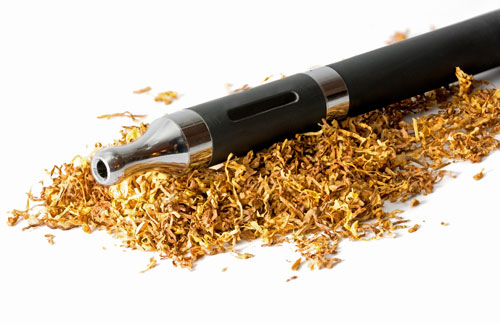Big Tobacco is moving in on the vaping industry–but in a different way from before.
By Tom Buckland
It is unsurprising that Big Tobacco has traditionally been no fan of vaping products since their commercial introduction nearly 15 years ago. E-cigarettes represent, after all, a direct competition to Big Tobacco’s product. What’s more than that, they hold the potential to destroy the tobacco industry as a smoking-cessation aid.
It seems likely that the tobacco lobby is behind some of the misinformation that has been spread about vaping for many years, including misleading reports that suggest vaping is dangerous. It is certainly true that the rise in the popularity of vaping has already damaged cigarette sales. In the final quarter of 2017, U.S. cigarette sales decreased by 6 percent at the same time as the sales of the Pax Juul e-cigarette rapidly increased.
However, it seems like the Big Tobacco companies are now taking a different approach and rather than attacking or undermining the vaping industry, they are looking to strengthen it and at the same time gain a stake in the industry for themselves.
In December 2018 it was announced that major Big Tobacco player Altria has invested $12.8 billion in e-cigarette company Juul. This move means the tobacco company now has 35 percent ownership of the e-cigarette and vape pen manufacturer and supplier, which has seen staggering popularity since its first products were released a few years ago. This came just two months after Altria announced it would no longer produce its own vaping device, the Mark Ten, citing concerns about an “epidemic” of vaping among teenagers. They seem to have back flipped in December, when Altria CEO Howard Willard announced the investment and said, “We have long said that providing adult smokers with superior, satisfying products with the potential to reduce harm is the best way to achieve tobacco harm reduction.”
This was probably the most decisive investment in vaping by Big Tobacco, but it was by no means the first. In July 2017, British American Tobacco invested $2.5 billion in its “non-conventional cigarette portfolio,” including acquiring vape producer Vype. Around the same time Philip Morris International, the company that owns Marlboro among other tobacco producers and suppliers, announced a major research & development shift to focus on the development of alternatives to cigarettes. U.K.-based cigar giant Imperial Brands, meanwhile, has invested strongly in its “next-generation product” division which produces a range of vape products under the Blu brand.
Despite the level of Big Tobacco involvement in the production and marketing of vaping products, smaller e-cigarette companies retain a strong presence in the industry—for now at least. There remain a number of e-juice producers, largely offering “gourmet” e-liquid products as an alternative to well-known products produced by the big brands.
Big Tobacco’s involvement with vaping is not limited to investment and production of vaping products. They are also becoming vocal in the pro-vaping advocacy space. A current campaign which is lobbying the European Commission to treat vaping products differently from tobacco was recently revealed to have financial backing from Imperial Brands.
In Australia, Big Tobacco is being very active in the current debate to legalise vaping (e-cigarettes are banned in the state of Western Australia, and restricted in other states). Philip Morris, came out in February to advocate for the legalisation of vaping devices in Western Australia. The company told Australian legislators who are examining the issue that the e-cigarette ban should be lifted in order for the state to “catch up” with other countries.
The moves of Big Tobacco into the vaping industry, which span at least three continents, likely represent a widespread change which we will see across the board. We can likely expect to see Big Tobacco investment in e-cigarette companies to expand substantially, at the same time as lobbying for more favourable regulations. What impact this will have on the vaping industry remains to be seen, but it is probably safe to say that the growing presence of tobacco players will make many uneasy.
Tom Buckland is the head of content at Vapemate, a company that help smokers to quit smoking.

